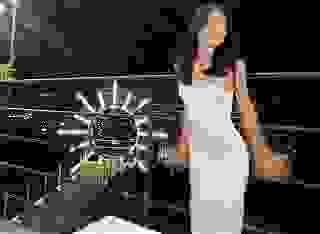- Non-Erotic Poetry
- Thanks a lot, Galileo
Note: You can change font size, font face, and turn on dark mode by clicking the "A" icon tab in the Story Info Box.
You can temporarily switch back to a Classic Literotica® experience during our ongoing public Beta testing. Please consider leaving feedback on issues you experience or suggest improvements.
Click hereI.
Thanks a lot, Galileo.
Ever since you popularized
studying the stars in the sky,
people have progressively
been losing their faith in God.
Thanks a lot.
Why, even those bishops decreed
that, indeed, our loss of faith
in this bewildered state
in which we live,
is a direct derivative,
a corollary coronary,
of an exhausted heart.
The mysteries have departed us.
And didn’t Sarte say God is dead,
but I thought he was an atheist,
yet how is that possible if he also
accepted God was once animate?
Bertrand Russell believed in God,
but he confessed a loss of sanctity
in a world grown vacant in morality.
The knowledge realized by science
has stamped our faith null and void,
and what little that has survived
has been ruined by the church.
There is no more soul to search.
The more we learn
the less we know,
or so it sometimes
seems.
Thanks a lot, Galileo.
II.
Well, it wasn’t really all your fault, I suppose,
anymore than, say, Newton with his gravity.
The investigations themselves were brilliant.
It wasn’t the discoveries the starsecrets revealed
that killed religion, nor later the simian link
of evolution espoused by Darwin, and not even
the knowledge our Earth is a billion years old.
It was the general scene, the new mindset
of meaningless matter in perpetual motion,
of a world unaltered by moral principle and
no longer ruled now by higher purpose but
by the blind laws of absolute force, this is
what ushered in a century of religious doubt
and ultimately sealed its vaulted fate,
an ideal lost in the experience of things.
And so it is that we assume the myth,
the Atlas who must shoulder the load,
the shattered dreams of fallen beliefs,
in an omnipotent universe that is rolling
relentlessly onward over an immense,
spiritual void, dissatisfied, disillusioned,
restless spirit of modern man.
III.
But if we allow the sacred vision
created for our salvation to dissolve,
do moral principles and values lie
in tattered ruins at our feet as well?
And anyway, isn’t religious fervor at its peak,
and are not terrorists the messengers from hell
and tsunamis the works of a wrathful God,
and God bless whoever your country is?
Hobbes once observed no purpose, no value,
and if life has lost this, then isn’t our worth
even less than the secluded clam clinging
stubbornly to its muddied survival, and
if ethics such as good and evil is merely
a doctrine of relative morals, then does
this not crumble its very foundations?
Is this what Kant was up to as he was
exploring new forms of human conception
and the conditions of valid knowledge?
A new paradigm sculpted wholly from man,
a secular standard of moral principle,
possible, but is it practical, and
will it come before the collapse of
a civilization losing momentum fast?
IV.
We are here on this sphere
and this is our brave new world.
Animate matter, universal product,
rise up as one and face the truth.
We are God.
Glorify and honor our Man-made ideals,
our innate sense of right and wrong.
Rejoice in song as you realize beauty,
created in an unheeding universe.
Worship moments, and monuments erected
and projected from stunning imaginations.
Praise our heroic soulefforts of survival
in the facade of preposterous odds.
Our ability to laugh death in the face
because it means absolutely nothing.
We are the maker of all dreams,
the godstuff inherited from stars.
No more illusions, no more lies,
no more alibis for bad behavior.
The truth will set you free.
- COMMENTS
Nice poem. There seems to be alot there, and it gets me thinking... which means success if you ask me. I especially like the first and second sections (although it may be length that is putting me off the other sections)
One small thing that got me though. It wasn't Sartre who said 'God is Dead'. That was Nietzsche, who, like Marx with his Opiate for the masses, saw the Xtian Religion as a crutch for a primitive culture still to learn its own morals. Sartre tried to argue against the existence of God... because he saw the existence of God as being logically incompatible with his vision of mankinds autonomy (God's Omniscience reduced man to an object without freedom). Unfortunately Sartre's arguments suffered from 'Argumentum ad Consequatium' (Appeal to consequences, a logical phallacy whereby the perpetrator points to the disagreeable consequences of a belief as evidence that the belief is false) which left them logically flawed (perhaps you allude to this with your questioning of Sartre's argument if he was an atheist?). Sartre never argued that God was dead, but simply "If man exists, God cannot exist...". However before his death he reverted to Christian Theism....
I only mention this because I liked the first section of the poem so much but felt that this let it down a little.
Good piece nevertheless.








